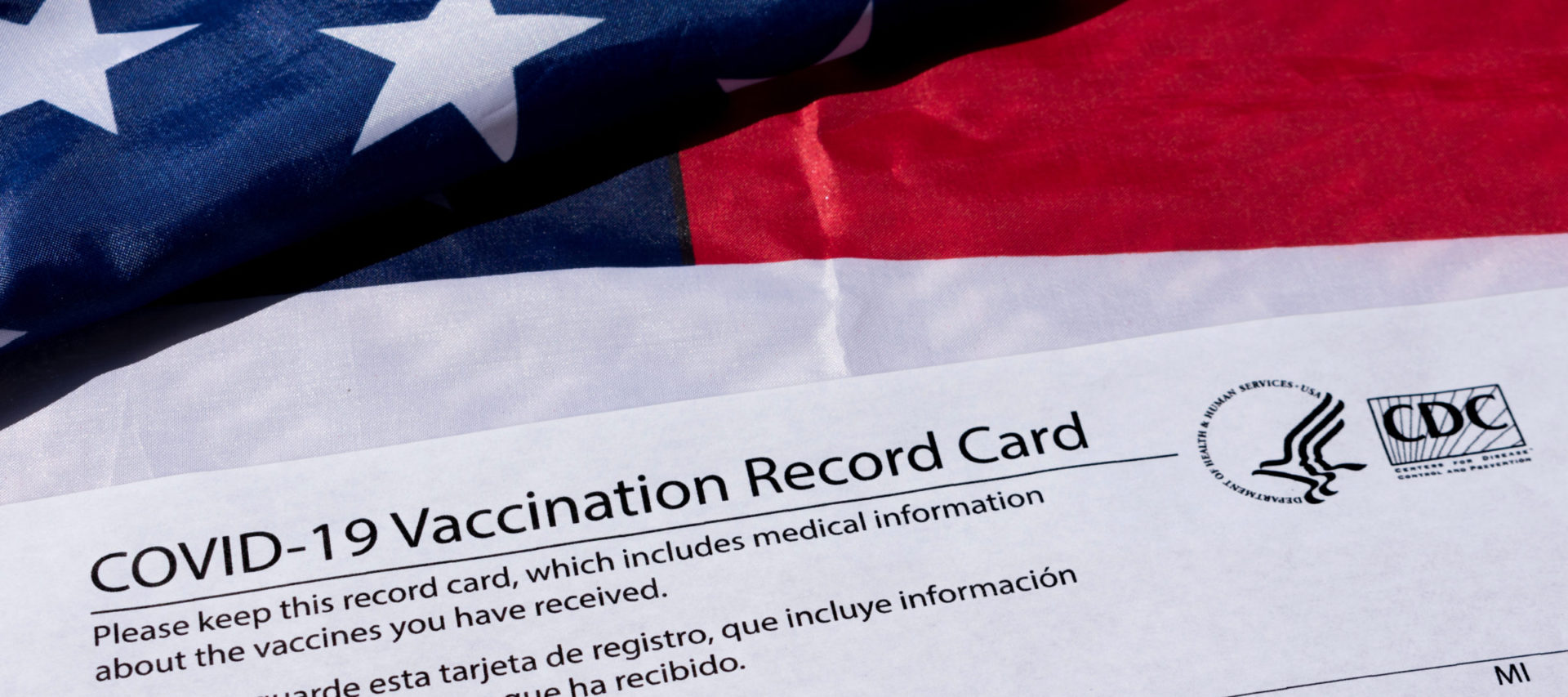

Seeking to make sense of a debate over “natural immunity” — whether it’s better than vaccination, whether it should “count” the same — New Atlantis editor Ari Schulman quizzed associate editor Brendan Foht, who has a background in biology and years of writing under his belt on complex questions about biotech and politics.
This is part 1 of 3 in our short series.
Ari Schulman: Brendan, there’s a war on — not a war against the invisible enemy, but a war between Camp Vaccine and Camp Natural Immunity.
There are weighty issues at stake: If you are “naturally immune,” should that “count” the same as being vaccinated, for the purposes of vaccine mandates and passports? When we’re tracking a region’s progress toward herd immunity, should we be including natural immunity too? There are big culture-war stakes here too. So let’s just start with a definition:
What is “natural immunity,” and is that a sensible term to use?
Brendan Foht: “Natural immunity” simply means the immunity you get when you’re infected by Covid — assuming you survive and recover — as opposed to the immunity conferred by vaccination.
Some people object to the term, because all that vaccination is doing is triggering the same immune system that infection does. Either way, it’s your body producing the immunity. But it’s still a common term among researchers, it’s accurate enough, and it’s a lot less clunky than the alternative “infection-acquired immunity.”
Ari: Whether natural immunity should “count” the same as being vaccinated is ultimately a bureaucratic and social question. But we want it to be based on reality, as best we can understand it. So the first thing we want to know is:
How effective is natural immunity compared to vaccination against Covid?
Brendan: The studies that have been done on this question point in quite different directions, leading to dueling headlines for people following this. It takes some unpacking to make sense of them, but let’s walk through some of the most notable ones.
Probably the most talked-about study comes from Israel. So far it’s only been released in preprint. By analyzing patient data from a large Israeli health care network, the study examined how 780,000 people who had some form of immunity, from either recovery or vaccination or both, fared this summer, when the Delta variant was prominent.
The headline finding is that vaccinated people were 13 times more likely to get infected than people who had been naturally immune for a similar amount of time. For Covid-related hospitalization, the risk was 7 times higher. For symptomatic infection, natural immunity was also 7 times more effective. There were no deaths in either group.
The study also found that the effectiveness of natural immunity wanes somewhat over time, much as has been found for vaccination in other studies.
Ari: That sounds like a huge advantage for natural immunity over vaccination.
Are there studies that instead show a clear advantage for vaccination?
Brendan: Yes, there is at least one. Another study that recently received a lot of attention, including being touted by CDC director Rochelle Walensky, is one conducted by researchers from the CDC and a network of hospitals across the United States. This study came to the opposite conclusion of the one from Israel, finding that vaccination was 5 times more effective than natural immunity against infection.
More precisely, the study looked at people who were hospitalized with Covid-like illness in the U.S. from January through September 2021, and looked at two groups: people who had not been vaccinated, and had previously tested positive for Covid; and people who had been fully vaccinated, had no documentation of previous infection, and had at some prior point tested negative. These were their respective proxies for people with natural immunity only and with vaccine-induced immunity only. All of these subjects were tested for Covid during their hospitalization, and the positive rate was 5 times higher among the previous-infection group than the vaccinated group.
Ari: Okay, so…
What other notable studies should we know about?
Brendan: A program in the UK recruited a randomly selected set of households, and asked their members to participate by testing themselves for Covid on a regular basis — the target was at least “fortnightly,” or every two weeks, as the very British writeup states.
They found that, during the Delta wave, people who were fully vaccinated were 67 percent less likely to get infected than people with no immunity, while people with natural immunity were 71 percent less likely. That difference was small enough to be not statistically significant — meaning you could conclude from this that the effectiveness of vaccination and natural immunity are simply the same.
A number of other studies have concluded that vaccines and natural immunity offer similar protection, rather than one or the other having a big advantage.
The CDC has a recent, long review of what’s known about natural immunity against Covid, and it includes a table of seven studies that tried to put numbers on how effective natural immunity is against re-infection. Those numbers ranged from 81 percent to 95 percent. That is roughly in the same range as the figures that have been found for mRNA vaccines, or maybe a little higher if you factor in how the effectiveness of vaccines drops off more over time.
Ari: Oof. Thanks, Brendan. We’ll try to make sense of what conclusions we can draw from these wildly diverging studies in the next part of our series.
Header image: Shutterstock
Exhausted by science and tech debates that go nowhere?